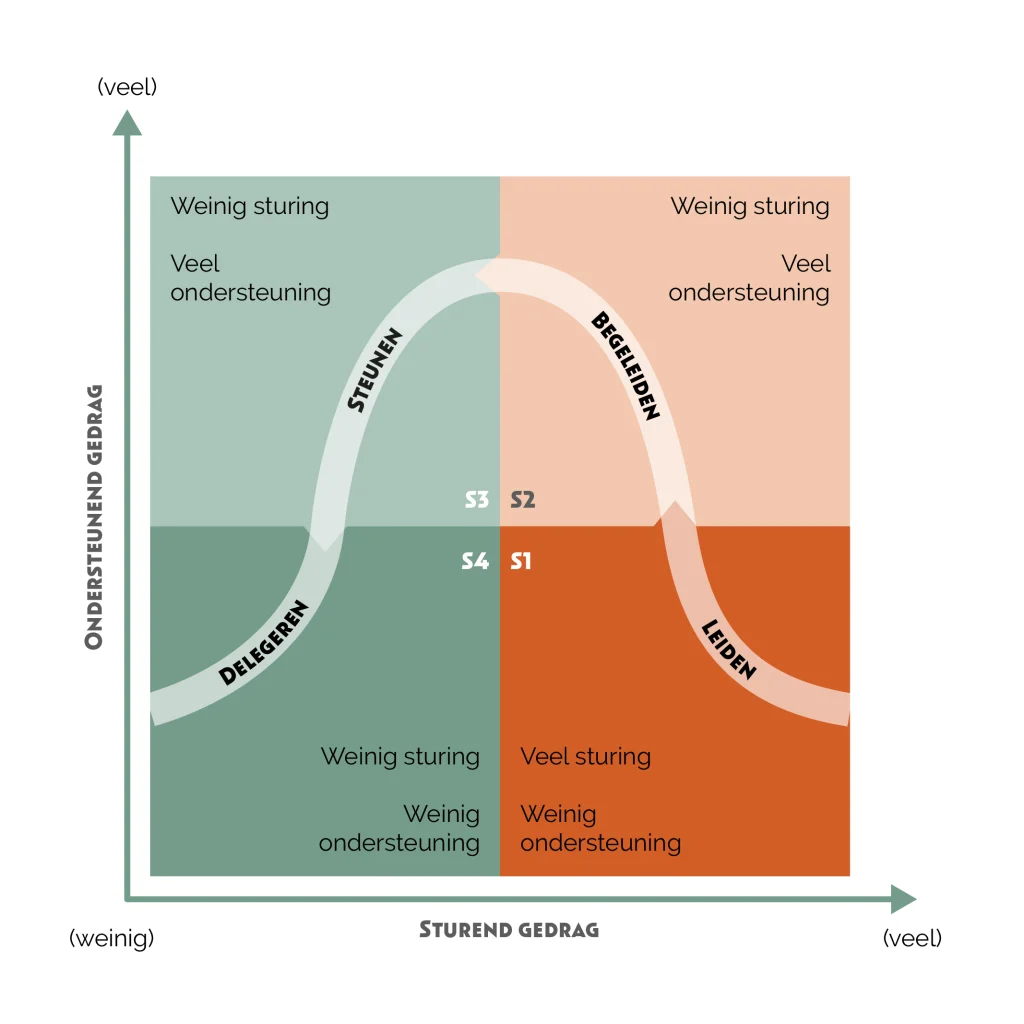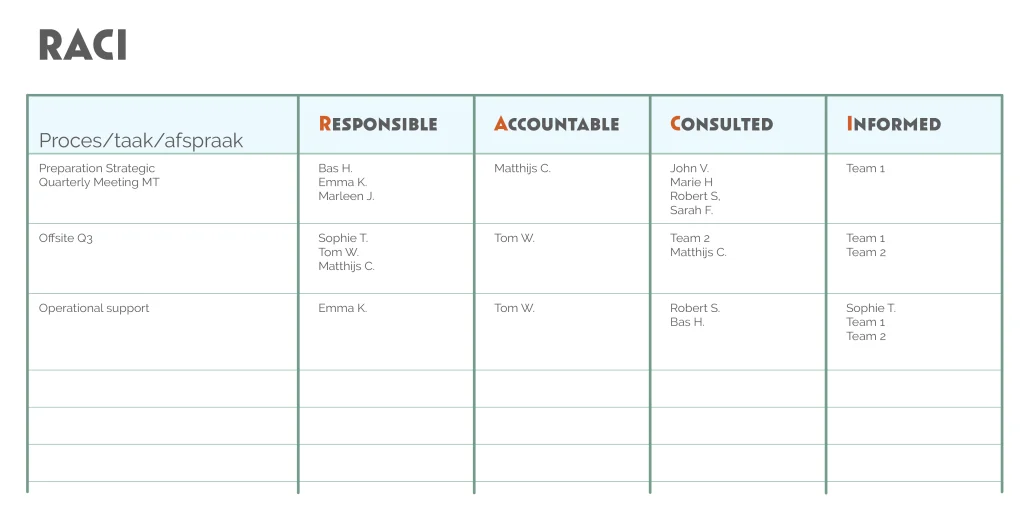This is the fourth blog in the team development series. This time we are going to talk about the third stage of the Tuckman model of team development: norming.
In the first stage of team development people come together in a team for the first time. They have yet to get to know each other and are defining their positions in relation to each other.
In the second stage storming the team wants to know what they will be doing and how they will be doing this. Conflicts and discussions arise.

The norming stage in team development
You have arrived in the third stage of team development: norming. Your team came out of the conflicts stronger.
New rules have emerged that everyone agrees with. As a manager, you focus on reinforcing positive behaviour and encouraging and adhering to the team's norms.
Facilitating processes and procedures of team culture as a manager
As with situational leadership, you wil as a leader come into the 3rd stage: coaching. The team needs your day-to-day leadership less and less. The focus of the team members is on each other; they ask each other for help and learn from each other.

As a leader, you'll ask questions above all, rather than giving instructions or directives. Let it be known that you are proud of your team and radiate confidence in their abilities. Also when it comes to their self-solving ability. You only create the bed for the river to flow.
You'll need to stay sharp as a leader that your team members remain open to people outside their own team. The tendency is to be strongly focused on each other while excluding the outside world. Newcomers to the team in this norming phase may find it difficult to connect. Your role as manager here is to coach the existing team and the newcomers towards successful cooperation.
In executive coaching, the executive is coached on:
- empowering teammembers,
- effectively delegating responsibilities,
- keeping everyone in line with the organisation's goals
Moreover, coaching interventions help leaders foster a sense of belonging within the team, refine decision-making processes and cultivate a culture of continuous improvement.
What forms of work do you apply in the Norming stage?

Are you curious about the fourth and last stage in team development, Performing? If so, continue reading here..

